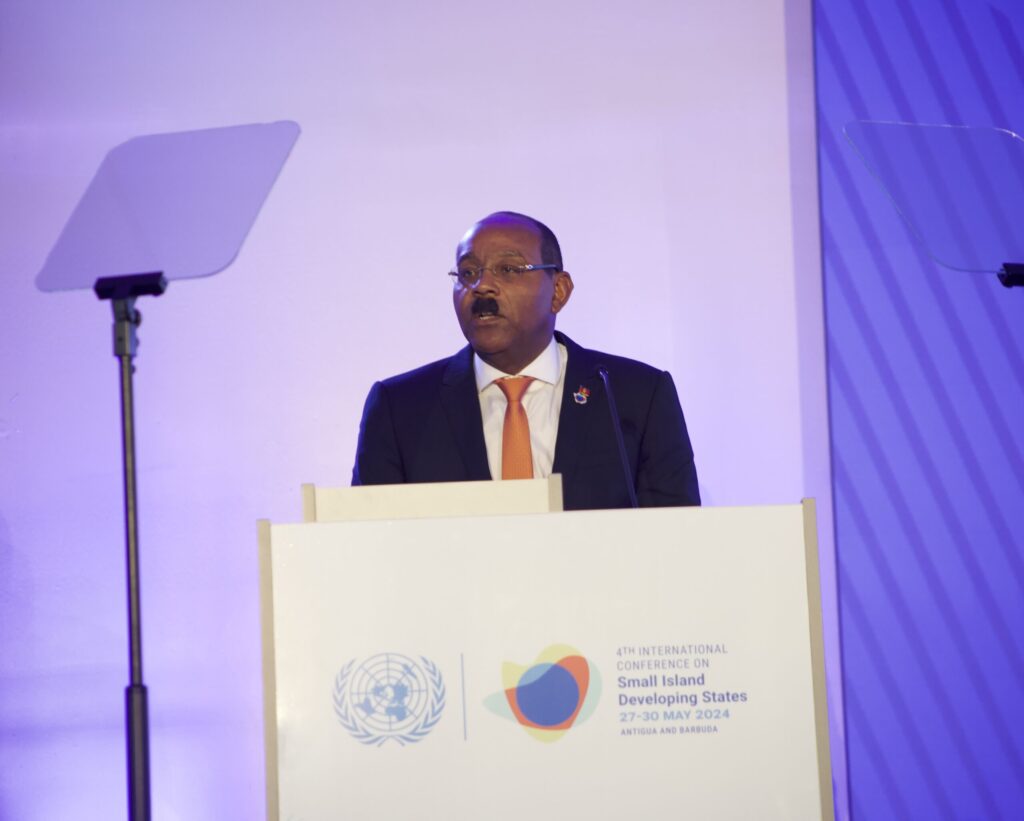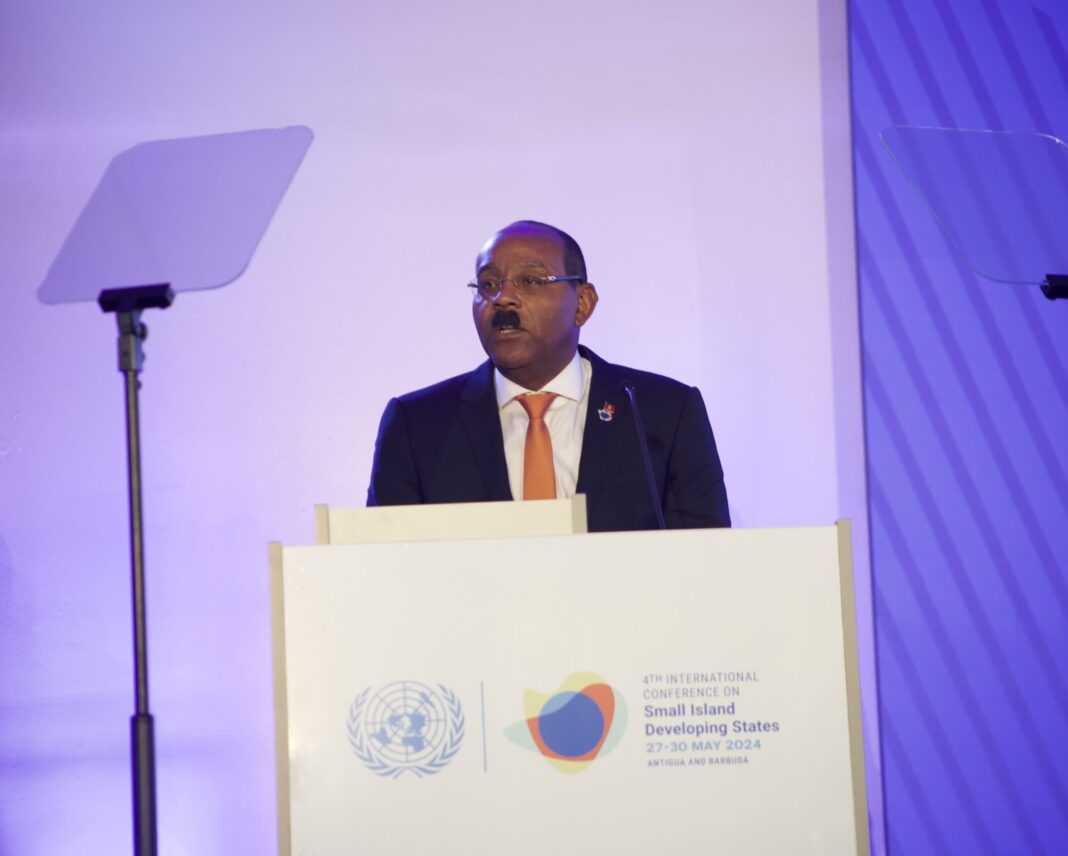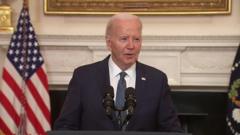
As the fourth International Conference on Small Island Developing States concluded today, world leaders adopted the “Antigua and Barbuda Agenda for SIDS: A Renewed Declaration for Resilient Prosperity” — named after the Caribbean island nation that hosted them — and pledged to help such States achieve their priorities over the next 10 years.
“After three decades and three programmes of action, SIDS [small island developing States] remain a special case for sustainable development,” world leaders declared in that document. Recognizing their unique vulnerability, however, does not mean that those countries exhibit weakness or lack potential, it continued — “rather, it means recognizing that they are disproportionately impacted in terms of physical destruction and non-economic and economic losses to a far greater scale that elsewhere”. In response, the international community must assist such States in diversifying their economies and strengthening their productive capacity. Further, the international financial architecture must make accessing concessional financing easier for such States.
Underscoring that “the next 10 years are critical for SIDS”, world leaders reaffirmed the continued applicability of previous programmes of action and committed to support such States as they exercise “full ownership” of this new Agenda and seek to establish “partnerships as equals”. Noting that such States aspire to build resilient economies, the Agenda both welcomed and urged support for their efforts to establish a “SIDS Centre of Excellence” in Antigua and Barbuda. The Centre will include, inter alia, a “SIDS Data Hub”, a technology and innovation mechanism, and an “Island Investment Forum”.
As small island developing States also desire to foster safe, healthy and prosperous societies, the Agenda called for international support to help such countries strengthen health systems, build strong institutions, achieve gender equality and empower youth. International support was also urged to help small island developing States foster sustainable energy transitions, develop integrated water-resources management, enhance food security, build resilient infrastructure and enhance transportation and connectivity to link such States’ economies to regional markets and global supply chains.
Noting small island developing States’ concern that there is a “rapidly narrowing window out to 2030” to keep warming to 1.5°C above pre-industrial levels — critical to their sustainable development — the Agenda also sought international support for the conservation, restoration and sustainable use of oceans, marine resources and biodiversity. On that, the Agenda urged that biodiversity loss caused by harmful human activities be addressed, including through measures such as satellite monitoring and the establishment of area-based management tools. It also urged the mainstreaming of disaster risk reduction.
In addition to detailing what small island developing States want, the Agenda also discussed how to get them there. While such States bear the primary responsibility for their own development, world leaders recognized that their “persistent development challenges” require enhanced global partnership. To realize the Agenda by 2034, the international community committed, inter alia, to facilitate easier access to affordable and concessional finance — including by “considering how best multidimensional vulnerability could be incorporated into existing practices and policies for debt sustainability and development support”.
Further, the international community committed to support sustainable debt management by considering the establishment of a dedicated “SIDS Debt Sustainability Support Service”. This would aim to devise effective solutions for such States in relation to “debt vulnerability in the immediate term and debt sustainability in the long term”. Additionally, world leaders committed to scale-up climate action in line with existing commitments and obligations under the United Nations Framework Convention on Climate Change and the Paris Agreement on climate change. This includes taking urgent action to “hold the increase in the global average temperature to well below 2°C above pre-industrial levels”.
Through the Agenda, world leaders also committed to scale-up biodiversity action, support ocean-based action, build resilience to disasters, increase access to assistance for health systems and strengthen data collection, storage and analysis. On the latter, they committed to support the “SIDS Centre of Excellence”, through its innovation-and-technology mechanism, to provide learning opportunities, exchange experiences and support innovation to both build capacity and narrow the digital divide.
“We value the role of the United Nations system in supporting SIDS to achieve their sustainable development objectives,” the Agenda declared, calling on that system to ensure that all UN entities operating in such States are well-resourced. Finally, in addition to other monitoring-and-evaluation mechanisms, the Agenda requested that the Secretary-General convene an inter-agency task force to develop such a framework — with clear targets and indicators — to be completed no later than the second quarter of 2025. “We commit to engaging in systematic monitoring and evaluation of the ABAS [Antigua and Barbuda Agenda for SIDS] over the next 10 years,” world leaders pledged.
After the Agenda’s adoption, the representative of New Zealand, also speaking for the Maldives as a co-Chair of the Conference’s Preparatory Committee, urged its immediate implementation. The UN system has an important role to play — including ensuring the completion of the evaluation-and-monitoring framework for the Agenda — and she observed: “After all, what doesn’t get measured, doesn’t get done.” The representative of the Maldives, stressing that “our smallness will not hold us back — not anymore”, urged partners to support small island developing States as they begin implementation.
Introduced by the representative of Belize, speaking for the Group of 77 and China, the Conference then adopted a resolution expressing gratitude to the Government of Antigua and Barbuda for hosting the Conference. That country’s representative, following the adoption, recalled asking his Government permission to host the Conference and said that doing so “shows, as a nation, that we can support an international effort”. Barbados’ representative then recalled that her country was the “birthplace of the SIDS agenda”, stating that — while “this is the feel-good moment” — the real challenge of moving from promise to delivery lies ahead.
“The path has been set, yet success is not guaranteed,” said United Nations Deputy Secretary-General Amina Mohammed in her closing remarks, stressing: “Success relies on each of us stepping up in genuine partnership.” The Agenda “provides concrete guidance for our collective efforts to support SIDS to achieve resilient prosperity” and “presents a vision for the future SIDS want”, she said — a future in which their economies can withstand external shocks and access to food, energy and water is guaranteed.
Expressing the UN’s commitment to support small island developing States more effectively, she added that resident coordinators and UN country teams on the ground will be working together with all partners to support their sustainable development and digital and green transitions. “As we prepare to leave Antigua, let us remember that this conference marks the beginning of a new journey,” she said, expressing hope that the next conference in 2034 will see that the work that began here today will have transformed the lives of the people in small island developing States.
Gaston Browne, Prime Minister of Antigua and Barbuda, then expressed gratitude to all stakeholders — from delegates to local volunteers — and said: “This week, we are celebrating a new beginning.” Noting that the Conference launched a Debt Sustainability Support Service on 28 May, he said this will be “a game-changer for islands”. The Service will expand fiscal space and address the unsustainable debt burden under which many small island developing States are reeling.
Also spotlighting the establishment of a “SIDS Centre of Excellence”, he said that these landmark achievements are “more than just announcements” — they are institutional mechanisms that will ensure implementation of the Agenda. Drawing attention to the “SIDS Data Hub” and its innovation-and-technology mechanism, which will use artificial intelligence to empower climate-related decision-making, he also noted that his country will convene the first Island Investment Forum within the next 12 months.
He then declared the fourth International Conference on Small Island Developing States closed amidst a round of applause.

